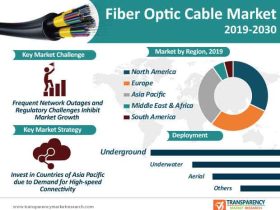There is no uncertainty that Blockchain will completely transform the world in upcoming years. Blockchain is a peer-to-peer network that maintains all transaction information in blocks. While staying private, it offers immutable, transparent, and shareable systems. Blockchain technology is one of the most popular topics for both learners and professional researchers. That is why you can find hundreds of blogs and samples on academic help websites that offer services like informational technology research paper help, dissertation writing help, free Psychology thesis topics, etc.
Interest in Blockchain has also developed because of its critical characteristics in e-commerce; that is, it provides security and data integrity without the intervention of a third party in transaction regulation. Therefore, it generates intriguing research areas, especially regarding restrictions and technical difficulties (Yli-Huumo et al., 2016). As a result, blockchain technology is an excellent fit for the e-commerce sector. More and more e-commerce organizations are looking for blockchain development companies to help them integrate this latest tech into their platforms.
What is Blockchain?
Blockchain is a technique for storing data that makes it difficult or impossible for the system to be altered, hacked, or otherwise abused. A blockchain is a type of distributed ledger that distributes and copies transactions among the network of computers involved.
Blockchain technology is a framework for storing public transactional records (sometimes referred to as “blocks”) across multiple databases in a network connected by peer-to-peer nodes. This type of storage is frequently referred to as a “digital ledger.”
Every transaction in this ledger is validated and protected against fraud by the owner’s digital signature, which also serves to authenticate the transaction. As a result, the data in the digital ledger is quite safe.
In plainer terms, the digital ledger can be compared to a Google spreadsheet that is shared across several computers connected to a network and where transactional data are kept in accordance with actual purchases. The data may be seen by anyone, but nobody can alter it, which is an intriguing aspect.
Benefits of Blockchain in Ecommerce
The main advantages of blockchain technology in eCommerce include:
1. Fraud Reduction
Blockchain technology uses a distributed ledger of immutable transactions, meaning that data can’t be altered. It helps stop fraud and creates a secure way to store transaction data.
2. Enhanced security
Blockchain technology is highly secure due to its decentralized nature and cryptographic algorithms. It makes it difficult for hackers to tamper with data.
3. Increased transparency
Blockchain technology allows for increased transparency of transactions. It can help build trust between buyers and sellers.
4. Faster transactions
Blockchain technology can help speed up transactions by eliminating the need for third-party intermediaries.
5. Lower costs
Blockchain technology can help reduce costs associated with transactions, such as fees charged by banks or other financial institutions.
Blockchain technology is used in e-commerce in the following ways.
Integrating Blockchain peer-to-peer system into e-commerce
Nowadays, the two most severe difficulties in e-commerce are online identity verification and data security—inadequate client identification results in many phony IDs and untrustworthy reviews. Due to inefficient data management, customers of modern e-commerce are also affected by the problem of personal information leakage (such as emails, shopping history, phone numbers, etc.).
As a result, Blockchain is seen as a fantastic breakthrough for resolving these challenges through a peer-to-peer payment mechanism. Here are some of the reasons why blockchain technology’s payment system promotes e-commerce:
- Blockchain is a decentralized digital data storage system that any third-party suppliers do not hold. As a result, shopkeepers and customers are the only parties associated with the payment systems that may control transactions. Worrying about a third-party entity interfering with your trades is no need.
- When utilizing cryptocurrencies such as Ethereum or Bitcoin, users do not need to open an account with any third-party entities. Customers, for example, who wish to make payment by credit card must first visit their bank and open an account. As a result, utilizing blockchain payment systems in e-commerce is more convenient than the present e-commerce payment technique.
- Each transaction in the blockchain payment system takes just minutes to complete. However, a successful transaction in traditional e-commerce takes a much longer time. If clients pay with a credit card, banks must validate the transaction before proceeding with companies.
As a result, blockchain technology has the potential to deliver a more functional payment system. The day-by-day increasing scope of Blockchain gives the idea that may be sooner or later, online e-commerce businesses that are concerned with the academic help domain and provide Health care thesis help to the students in need would likely use blockchain technology for keeping the record of their payment transcripts in the upcoming years.
Enhancing supply-chain management in e-commerce
Item tracking has always been a primary concern for e-commerce businesses. Many online business owners struggle with monitoring, maintaining inventory, and managing supply. Also, because the supply chain contains multiple intermediates with complex processes such as unpacking, packaging, repackaging, and so on, it has become significantly challenging to control and manage the quality of these goods. Therefore, businesses can also utilize blockchain technology for e-commerce to improve supply chain management. It assists firms in tracing origins, lowering expenses, and maintaining privacy security.
- Blockchain technology facilitates provenance monitoring, and record-keeping as information about goods can be accessed anytime via identification tags and integrated sensors.
- Fewer intermediaries result in cheaper supply chain costs. Furthermore, eliminating the intermediates can reduce the risks of hacking, information leakage, and fraud.
Personalized product offerings for e-commerce customers
Personal data leaks and spam messages have always been a significant issue that concerns e-commerce customers. Many customers report that their phone numbers and emails have been compromised. Thus they are frequently plagued by spam and promotional emails from various retailers. Customers find it frustrating and time-consuming, eventually losing faith in e-commerce.
So, is there a way to solve this problem? Yes! Blockchain technology is the answer. Customers will completely control their data if Blockchain is integrated with e-commerce. They control who can access their purchase history and which merchants may send product offers to their emails. It enables clients to choose product offers and discount programs from only the stores in which they are most interested. As a result, blockchain technology not only assists users in avoiding spam emails but also assists businesses in addressing potential clients. Both parties benefit significantly from this arrangement.
Verified customer reviews
Brand images, prices, product quality, discount programs, and other factors impact customer retention. As a result, among other reasons, past customer evaluations are critical in convincing customers to repurchase items.
Blockchain technology, however, will enable each client to have their own ID registered with phone number, identity number, email, and address. As the registration information will be validated, there is no possibility of fraudulent reviews or ghost orders.
Final thoughts
The underlying blockchain technology has the most influence (dissertation proposal, 2022). Thus, integrating Blockchain into e-commerce greatly benefits businesses by improving supply chain management, minimizing fraud, and lowering expenses. Customers also gain heavily from blockchain-based e-commerce, like having more control over their data, avoiding spam messages, and receiving high-quality customer feedback.
Reference:
Yli-Huumo, J., Ko, D., Choi, S., Park, S. and Smolander, K., 2016. Where is current research on blockchain technology?—a systematic review. PloS one, 11(10), p.e0163477.
DP. 2022. What is Crypto-currency? Everything you need to know!Online Available at <https://www.dissertationproposal.co.uk/guide/what-is-cryptocurrency-everything-you-need-to-know/> [Accessed on 29th July 2022].











Leave a Reply